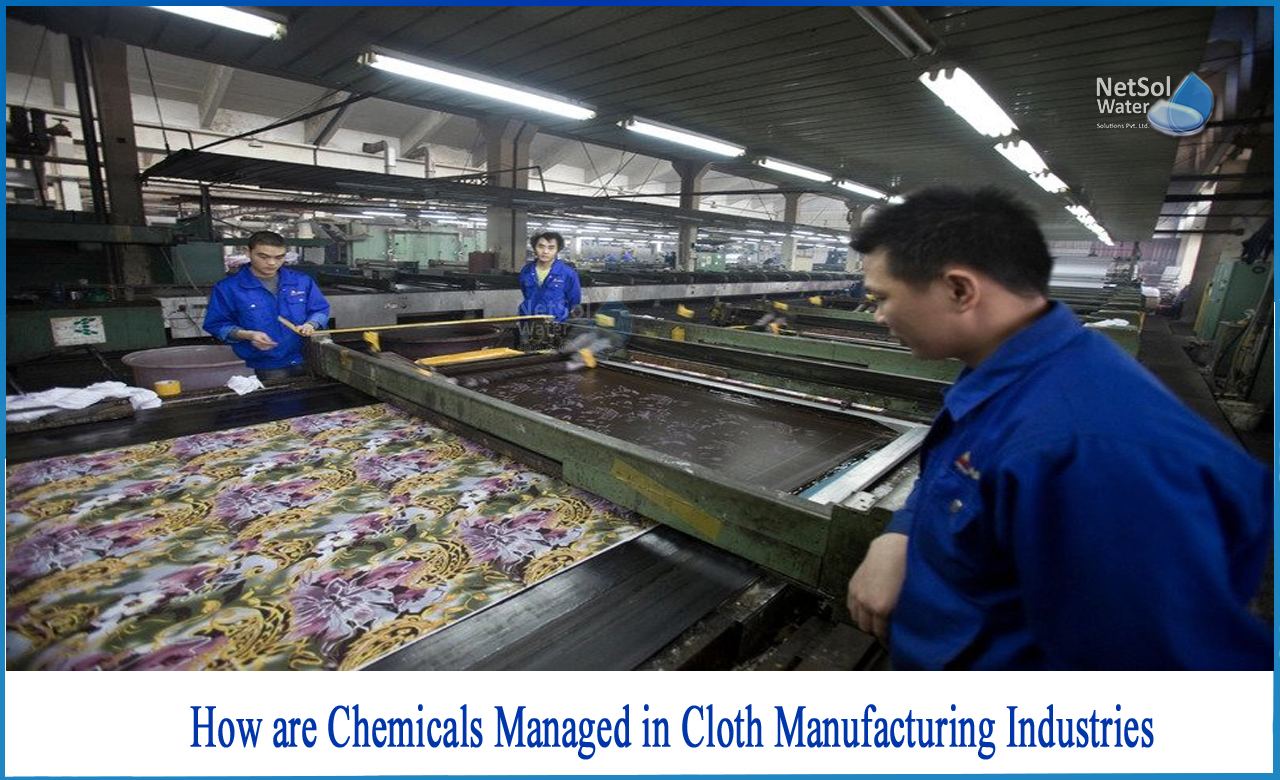How are chemicals managed in Cloth manufacturing industries?
It is well known that the textile, footwear and leather industries are highly polluted and use large amounts of chemicals. The industry consumes more than 9 million tons of chemicals worldwide each year, and when further decomposed, 1,900 chemicals are used in the manufacture of clothing, of which 165 are said to be harmful to health or the environment.
Chemicals are used from the beginning of the manufacturing process, from agriculture where pesticides can be used to grow raw materials such as cotton and flax, to production lines such as dyes and treatments and decorative materials such as denim finishes. These chemicals used along the supply chain can eventually get into water, soil and air and harm the planet and its inhabitants.
Despite the positive developments seen over the last decade, including some "deter commitments" of major brands in the industry, we are working towards a safer and more efficient chemical management system for textile and garment factories.
Chemical Management
Chemical management is still largely misunderstood, and this complexity means many factories, mostly small and medium-sized factories, and some brands and retailers have chemical-related accidents and mishaps. Companies respond only in the event of an outbreak, which can lead to supply chain disruption, lost sales, and poor reputation.
This article focuses on three best practices: textiles, apparel brands, and retailers looking at preventative approaches to chemical management in the supply chain.
Three best practices for avoiding chemical risks in the textile supply chain-
1. Knowledge is important
Supplier or factory must be trained to ensure that they have the skills to implement an effective chemical management program. Basic chemical management training includes:
A: Brand/Retailer Chemical Management Policies and Procedures
B: Chemicals used in the field, their dangerous properties, and employee/earth impact
C: Instructions on using information in the Safety Data Sheets (SDS)
People handling chemicals should be well trained in the procedures for obtaining, handling, using, storing and disposing of dangerous goods.
With additional Zero Emissions training on chemical hazards, suppliers have best-practice skills to assess the environmentalimpacts associated with chemical management, risk assessment, and control and treatment of water emissions.
Brands and retailers need a clear understanding of the required compliance documentation and open communication with their suppliers in order to successfully implement anall-roundchemicals management program.
It is important for brands and retailers with highly advanced chemical management processes to regularly discuss common issues at the operational level while continuing to raise management awareness.
2. Upstream evaluation of chemical substances
By identifying risks early before the product is developed, you can avoid future security and compliance issues. Most brands and retailers use Restricted Substance Lists (RSLs) to control chemicals, but tend not to focus further upstream in the supply chain.
The Restricted Substances List (RSL) is a checklist used to identify the presence of restricted substances in the finished product. This tool remains important to ensure that brands and retailers are providing products that are suitable for their intended use.
By evaluating upstream chemicals, suppliers can build a transparent and traceable inventory of chemicals that can be used throughout the supply chain to ensure safe products that comply with market regulations.
3. Monitor supply chain changes
The textile and apparel supply chain is rather complex, with multiple layers, and within those layers there are multiple actors. Therefore, the risk of one of these parties changing or exchanging material at any time, in the face of compliance obligations are simply because they cannot provide the agreed material.
It is recommended to identify and mitigate the impact of potential supply chain changes. This requires a transparent material procurement process and clear communication between procurement, design, regulatory teams and, of course, different suppliers. Additional training to major suppliers can also be a good solution to make them aware of the risks associated with significant changes.
Conclusion
Thus in textile industry, it is important that companies and workers are having knowledge about the chemicals they are handling. They should be aware about the first aid in emergency situations for particular chemicals and their safe disposal methods as well.
Netsol can provide multiple solutions for brands, retailers, and their suppliers to better manage chemicals in their supply chains and prevent harm to people and the planet.
We can manage providing chemical risk assessment and management audits to ensure that all aspects of chemical management, including safe purchase, handling, use and disposal of chemicals, are observed in factories.
Netsol Water is Greater Noida-based leading water & wastewater treatment plant manufacturer. We are industry's most demanding company based on client review and work quality. We are known as best commercial RO plant manufacturers, industrial RO plant manufacturer, sewage treatment plant manufacturer, Water Softener Plant Manufacturers and effluent treatment plant manufacturers. Apart from this 24x7 customer support is our USP. Call on +91-9650608473, or write us at enquiry@netsolwater.com for any support, inquiry or product-purchase related query.



